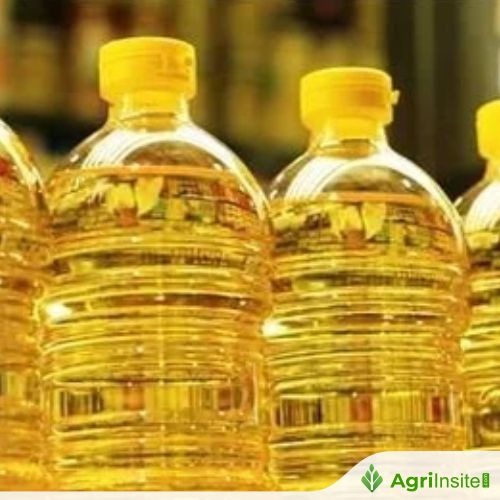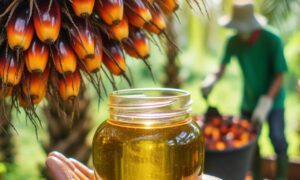AWL Agri Business expects edible oil demand to stabilise after duty cuts

India’s edible oil sector is seeing price corrections following the government’s June 2025 duty cut, which halved import duties on crude oils to curb inflation. AWL Agri Business CEO Angshu Mallick said prices have fallen by Rs 10/kg since mid-June, boosting consumption certainty. However, Crisil forecasts a 2–3% revenue decline for refiners due to lower realizations and tighter margins.
India’s edible oil consumption is expected to strengthen, supported by recent duty cuts on crude edible oil imports, Angshu Mallick, chief executive officer of AWL Agri Business, India’s largest edible oil company, told Moneycontrol.
With reduced prices, consumption looks more certain, he said in a post-earnings interview.
Formerly known as Adani Wilmar, AWL owns leading brands such as Fortune, King’s, Kohinoor, Raag, and Aadhar, catering to a wide range of consumer and industrial segments.
In June, the Centre slashed the basic import duty on crude edible oils from 20 percent to 10 percent to ease food inflation and support the domestic refining industry. The move followed a sharp spike in edible oil prices triggered by a 2024 duty hike, which had made the commodity increasingly unaffordable for consumers. The price surge significantly added to inflationary pressures, with retail edible oil prices soaring and contributing to overall food inflation.
“The government wanted all the manufacturers to pass on the benefit to the consumers, and on June 15, the entire market was having duty-cut stocks. Today, the rates are almost Rs 10 lower than what they were at that time. So edible oil prices have come down, and consumption now looks to be certain at these prices,” Mallick said
“The biggest benefit to companies like us is that the duty differential between crude oil and refined has widened. Earlier, it was 7.5 percent; now it is 19.25 percent. At the current duty structure, importing crude is anytime cheaper. Companies like us, who have capacities and have invested in capacities, get an advantage, which we have now started seeing and will continue to see going forward,” he added.
Q1 show
AWL’s Q1 edible oil revenue was up 26 percent year-on-year, reaching Rs 13,415 crore, helped by higher prices. However, the volumes dropped 4 percent due to unaffordability.
Excluding palm oil, branded volume grew in low single digits, supported by continued strong performance in mustard oil. Raw-material prices in Q1 were around 30 percent higher compared to the base quarter, leading to muted consumer demand, the company said in its earnings statement.
AWL Agri Business on Tuesday reported a 24.5 percent decline in its consolidated net profit to Rs 236.4 crore for the quarter ended June 2025, due to higher expenses. The net profit of the edible oil major stood at Rs 313.2 crore in the year-ago period.
Margin pressure
Meanwhile, while the lower prices could drive volumes, the margins of the edible oil companies would be impacted, according to credit rating agency Crisil.
“Indian edible oil refiners are set to see their revenues decline 2-3 percent on-year to Rs 2.6 lakh crore this fiscal due to lower realisations, even as volumes grow 2.8-3.0 percent on-year. This comes after a 15 percent revenue growth witnessed in fiscal 2025. As a result, operating margin is expected to shrink 30-50 basis points to 3.3-3.5 percent,” Crisil said in its note on July 15.
India imports over 60 percent of its edible oil requirements, with crude palm oil accounting for more than 50 percent of these imports and soybean oil, sunflower oil, and other oils accounting for the rest. Except for soybean oil, whose prices may harden due to growing biodiesel demand, prices of other major oils, such as crude sunflower and palm oil, are set to decline, reducing the overall weighted average price, according to Crisil.
To Read more about Edible Oil News continue reading Agriinsite.com
Source : Money Control















